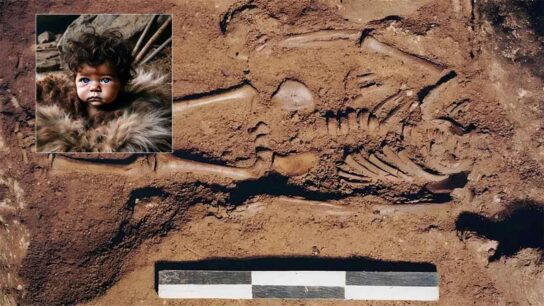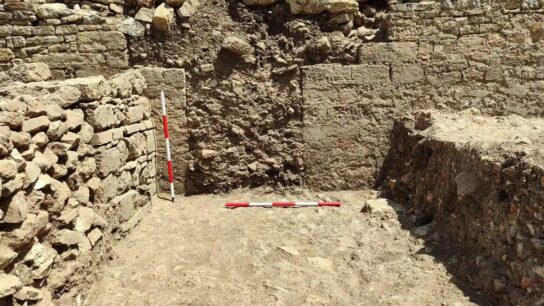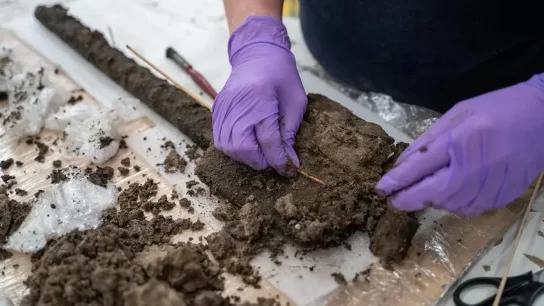Archaeologists Unearth Tomb of Genghis Khan in Mongolia’s Khentii Province
Construction workers employed in road building near the Onon River in the Khentii province of Mongolia, have discovered a mass grave containing the remains of many dozens of human corpses lying upon a large rudimentary stone structure.
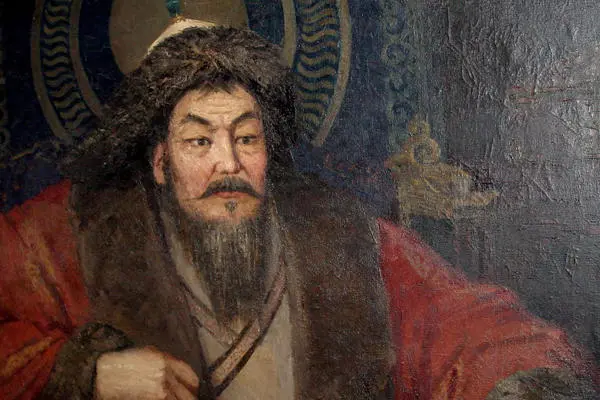
Forensic experts and archaeologists were called on the site, which was revealed to be a Mongolian royal tomb from the 13th century that the scientists believe to be Genghis Khan’s.
The team of scientists affiliated with the University of Beijing, has concluded that the numerous skeletons buried on top of the structure were most likely the slaves who built it and who were then massacred to keep the secret of the location.
The remains of twelve horses were also found on the site, certainly sacrificed to accompany the Great Khan in death.
A total of 68 skeletons were found buried together, almost directly over the top of a rather crude stone structure.
The content of the tomb was scattered and badly deteriorated, presumably due to the fact that the site was located beneath the river bed for hundreds of years until the course of the Onon River changed in the 18th century.
The remains of a tall male and sixteen female skeletons were identified among hundreds of gold and silver artifacts and thousands of coins.
The women are presumed to have been wives and concubines of the leader, who were killed to accompany the warlord in the afterlife.
The amount of treasure and the number of sacrificed animals and people, have immediately led the archaeologists to consider that the site was certainly the burial site of a really powerful Mongol warlord.
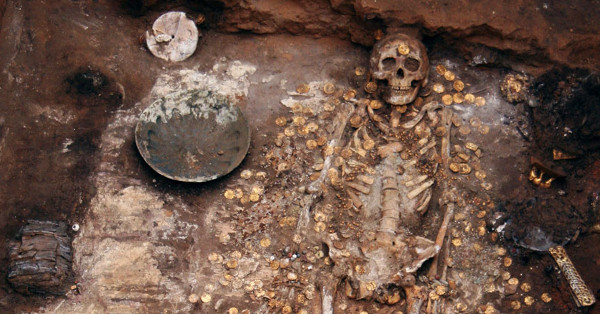
After realizing an extensive set of tests and analysis, they were able to confirm that the body belonged to a man aged between 60 and 75, who died between 1215 and 1235 AD.
Both the age, the date, the location, and the opulence of the site seem to confirm that the tomb does indeed belong to Genghis Khan.
The simple rock dome discovered by the archaeologists, was presumably buried beneath the Onon river for centuries.
The incontestable historical importance of Genghis Khan makes this new discovery one of the most important in the history of archaeology. Born Temüjin (which means “of iron”), he was the founder and Great Khan (emperor) of the Mongol Empire, which became the largest contiguous empire in history after his demise.

